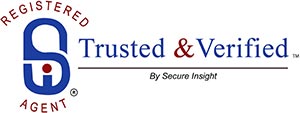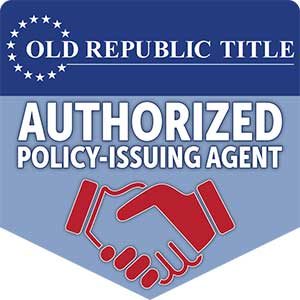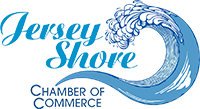New Jersey Closing Costs: The Complete Guide
The home-buying process can be complex and confusing. In addition to the cost of the home, you must factor in the cost of various fees. Additional fees you must be prepared to pay when buying a home are the closing costs.
How much are closing costs in New Jersey?
The exact closing costs you must pay will depend on the details of your situation.
In this guide, we will break down what closing costs include and how much you can expect to pay.
What is the Closing Process?
The last step in the home-buying process is closing. During the closing, the buyers and sellers sign the transaction documents and complete the sale. The parties involved in closing may include
- The Buyer’s Attorney
- The seller
- The seller’s attorney
- Your real estate agent
- Your mortgage lender
- The title company
The duration of closing depends on the situation. In some cases, it’s completed in a single meeting, but other times closing can take weeks.
Closing Costs
The closing process also involves a fee called the closing cost. This expense can add up, significantly impacting what you need to pay during the closing.
Closing costs include lender processing fees. The lender charges this fee for crafting your loan. The type of loan you take and your location will influence your exact costs.
The components of closing costs can include:
- Application fee
- The deposit held in escrow
- Property inspection fees
- Survey fee
- Escrow fees
- Attorney fees
- Notary fees
- Title search
- Title insurance
However, some of the costs above are optional. You can opt out of some parts at your discretion.
Who Pays Closing Costs?
Sellers and buyers pay closing costs, but the buyer typically pays more of them. However, buyers can negotiate with the seller about closing cost coverage. Getting the seller to cover more of the closing costs is called “seller concessions.”
However, there is a limit on seller concessions. Sellers can only pay up to a set percentage of the mortgage value. This limit varies depending on your down payment and loan type.
The Average Closing Cost in New Jersey
Closing costs can vary immensely depending on factors including your loan type, loan amount, down payment, and more. Still, it can be helpful to examine the average closing costs in New Jersey.
Data from ClosingCorp found that New Jersey’s average closing cost was $7,827.87 after taxes. This means that closing costs are roughly 1.57% to 1.96% of the home sale price.
This data is for the average home sale price of $400,000 to $500,000, and the closing cost range was $6,262.30 to $9,784.84.
If you buy a home in that range, you can expect similar closing costs in New Jersey. Still, it helps to break down the various components of closing costs for a closer look.
Components of Buyer Closing Costs
While looking at the average closing costs is helpful, it doesn’t give you an exact look at your prospective closing costs.
Roughly 3 days prior to your closing meeting, you receive a Closing Disclosure that will list out all of the costs you must cover.
Here are some of the common closing costs and approximate costs:
Application Fees
Lenders may charge an application fee for processing your loan. The cost of the application fee varies by lender. It may be up to $500.
Appraisal
Appraisers assess a home to determine its worth. They will perform a basic check-in to ensure the home is safe for move-in. The lender uses an appraisal to determine how much to loan for the property, and it helps prevent the buyer from overpaying. Typically, appraisal fees range between $300 and $600.
Attorney Fees
If you have a real estate attorney, you must pay their fee. The attorney plans your closing and helps with the title transfer paperwork. The attorney fee will vary.
Closing Fee
The escrow company or attorney who conducts the closing meeting charges a fee. If an attorney is required to attend, the cost will increase.
Courier Fee
Lenders may charge a courier free to transport the mortgage documents. This fee is typically around $30.
Escrow Funds
Escrow funds are what the buyer pre-pays, and it’s money set aside for property taxes, homeowners insurance, and mortgage insurance. The lender uses the escrow funds toward your monthly mortgage payment.
During the closing, the lender may require you to pay some months’ worth of expenses into escrow. Many lenders require you to put enough money in escrow to pay for 2 months of expenses.
FHA Mortgage Insurance
Those who take out an FHA loan must pay a mortgage insurance premium. Currently, the mortgage insurance premium for FHA loans is 1.75% of the base loan.
Loan Origination Fee
Lenders charge this fee for loan underwriting and preparation. It may be up to 1.5% of the loan amount.
Title Search and Insurance
The title search and insurance fee is usually $700 to $900. Lenders hire a title company to verify the title is lien-free. They often require home buyers to purchase a lender’s title insurance policy to protect the lender if title problems come up later.
Property Taxes
All homeowners pay property tax to the local government for roads, fire departments, public schools, etc. Property taxes vary by location and the value of your home. Some lenders require you to pay for a year’s worth of property taxes at closing. You will pay a prorated amount based on what’s still owed for the year.
Learn More About The Closing Process
There are several components of closing costs to consider when buying a home. Understanding the process and fees will help you best prepare. Furthermore, there may be ways to reduce closing costs.
Scott Title Services is here to help you learn more about the New Jersey closing process. After over two decades in the title service industry, we have a wealth of expertise to share with prospective buyers and sellers. Contact us today to learn more about the closing process in New Jersey!





